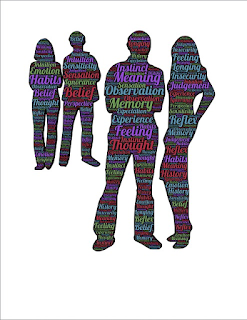Ideally, the artist should transform the environment into his own world. But since we live in bodies, which are dressed in clothes, which inhabit buildings, which are parts of cities, which are placed in countries, the most we can expect to see art realize in our surroundings is a struggle between utility and an enhancing uselessness.
The reason why 'poets adore ruins' and why - to almost everyone - its ruin can make a hideous modern building seem beautiful, may be that destruction celebrates the triumph of the useless over the useful. The useful (in a building, for example) belongs to the living - to the inhabitant - but the useless is that aspect of architecture which is like a mirror where the eyes of the dead still see their delight reflected. A city should belong at the same time to the inhabitants, who use it, the dead who have invented forms which give pleasure to the eye, and the unborn in whom the delights enjoyed by the dead will live. In towns where the dead and the unborn are omitted, there are simply buildings and thorough-fares used by the contemporaries. Utility seems inhuman even to the users, perhaps as the result of human defect which makes us ungrateful - incognizant almost - of that which we use. The inhabitants of modern industrial cities have a look of complete expressionlessness, of disregard for the surroundings, when they walk through streets or go on buses and trains. This is the 'utility' look (just like 'utility' clothes or furniture), the look of those who know that they are in a particular place simply for a particular purpose, and not in a sacred relation with its past and future.
Architecture, and most other 'applied' arts, expresses the tension of the aesthetic against the useful. At the other extreme, music is completely utilitarian, starting off at the point where the victory of the spirit over the instruments in the orchestra is complete, and there is an endless reign of imagined peace, But art made with words is inevitably debatable ground. Language enters our ears and eyes like a river flowing out of our surroundings; yet those who have a command of words can shape them in to patterns which, while remaining contemporary, resist the mere flow of things. Every poem, however 'pure', because it resists surrounding life, could be, and in totalitarian societies often is, suspected of being a manifesto. In poems, within one individual mind, the contemporary meets pasts and futures.
Perhaps we can build a statue on the skyline which, pointing to the clouds with a magnificent gesture, draws in our grimy slums through its feet, and, on a finger, uplifts them to the clouds, where they change into light; or perhaps we can only achieve our own transformation, inside ourselves, but with the possibility of communicating the secret to a happy few.
These two poles of outward and inward transform are the Romantic extremes: Shelley's claim that the poets are unacknowledged legislators, Keats cry, 'O for a life of sensations ... ' Keats saw that Shelley's wish to vivify the language of noble reason, so that it would incite men to make a just world, could lead only to the surrender of hidden poetic gardens to public planners; Keats wrote poems like arbours, in which readers were invited to spend a lifetime eating imaginary nectarines from imaginary dishes.
Although Keats attacked Shelley, their positions had this in common: both sought a center of their own poetic creating where the imagination is inconditioned. In making his wild claim about poetic legislators, Shelley is really anticipating Thomas Mann's remark in the early 1930's 'Karl Marx mus read Friedrich Holderlin;. Shelley realized that unless poetry could be at the center of politics it might be reduced to illustrating a politician's thesis. Keats chose the alternative to changing society through poetry: that of separating poetry from public matters altogether. Keats offered an entrancing void filled with imaginings where Shelley offered a transformed everything; but the difference between them was one of strategy. Keats thought that poetry should go into the world as a rich beggar, Shelley as a paupered, democratized king.






